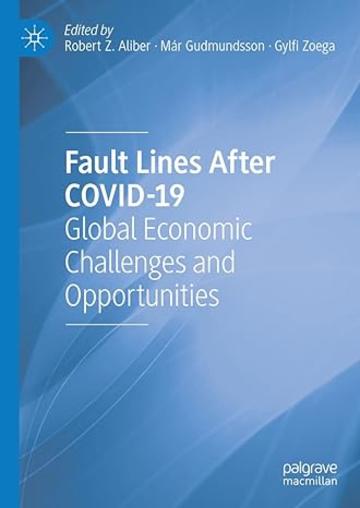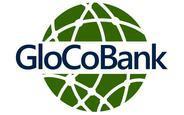BOOK CHAPTER: Catherine R. Schenk, 'Telegraph to Tether: Challenges in the Global Payments System and the Struggle between Private and Public Interests'

Catherine R. Schenk, 'Telegraph to Tether: Challenges in the Global Payments System and the Struggle between Private and Public Interests'
Cross-border payments systems are fundamental to the smooth operation of the global economy, but they have attracted relatively little public or academic interest. To support trade and commerce, the system needs to be fast, efficient, inclusive and transparent but these characteristics are challenged by long transaction chains, fragmentation and complexity, legacy technology and high compliance costs. The geopolitical importance was highlighted by the exclusion of Russia from Society for Worldwide Interbank Financial Telecommunications (SWIFT) in 2022. This chapter examines the changing technology and the origins of two key institutions (SWIFT and Clearing House Interbank Payments System in New York, or CHIPS) with special focus on the private ownership of this public good. It draws on new archive evidence from central banks, commercial banks and multilateral institutions to offer fresh insights into how the global payments system has evolved.
Aliber, R.Z., Gudmundsson, M., Zoega, G. (eds) (2023) Fault Lines After COVID-19. Cham: Palgrave Macmillan.
This book explores the central economic and political issues defining the modern world. With contributions from a number of world renowned economists, a range of topical debates are discussed in an accessible and practical manner. The topics discussed include the current economic and political backdrop, global economic shifts, challenges within central banking and financial integration, the international monetary and financial system, and geopolitical tensions. Particular attention is given to the transition to a low carbon economy, the perils of public debt, the post-COVID-19 recovery, and the conflict in Ukraine.
This book aims to envisage the economic challenges and opportunities that will be faced in the years to come. It will be relevant to students, researchers, and policymakers interested in economic policy and the political economy.
Chapter-No.17 is available open access under a Creative Commons Attribution 4.0 International License via link.springer.com.
Front Matter
Introduction
Robert Z. Aliber, Már Gudmundsson, Gylfi Zoega
Challenges Ahead
What Next for the Post Covid Global Economy: Could Negative Supply Shocks Disrupt Other Fragile Systems?
William White
Historical Roots, Cultural Selection and the ‘New World Order’
Marcus Miller
China
President Xi’s Perfect Storm
Robert Z. Aliber
Growth Without Democracy: Has China’s Time of Rapid Growth Come to an End?
Thráinn Eggertsson
Denunciations in Autocratic Regimes: How and When Do They Work
Tinghua Yu, Stephane Wolton
Dollar Funding Stresses in China
Laura E. Kodres, Leslie Sheng Shen, Darrell Duffie
Ukraine
Economic Consequences of Global Tensions
Ron Smith
Reconstruction, EU Accession, and Reform of Ukraine
Anders Åslund
Different Choices, Divergent Paths: Poland and Ukraine
Thorvaldur Gylfason, Eduard Hochreiter, Tadeusz Kowalski
Russia’s Use of the Kosovo Case to Legitimize Military Interventions and Territorial Conquests
Valur Ingimundarson
Central Banking and Financial Integration
Relearning Inflation Control in the Post-Covid Era
Willem H. Buiter
How the Flows Change When Interest Rates Are Normalized: Risk to Economic and Financial Stability
Sigridur Benediktsdottir
Policy Responses in Small Economies to Stability Challenges from Cross-Border Financial Integration
Már Gudmundsson
The International Monetary and Financial System
The Fed’s Swap Lines: Narrow Circle, Broad Effect?
Joshua Aizenman
Bond Market Crises and the International Lender of Last Resort
Robert N. McCauley
AVAILABLE OPEN ACCESS Telegraph to Tether: Challenges in the Global Payments System and the Struggle between Private and Public Interests
Catherine R. Schenk
Stablecoins
Anne C. Sibert
Global Warming
The Yellow Brick Road to a Decarbonized World Economy
Brynhildur Davídsdóttir
Consequences of the Economic Slowdown
The Need for Growth
Hian Teck Hoon, Edmund Phelps, Gylfi Zoega
Back Matter
Palgrave Macmillan; 1st ed. 2023 edition (September 27, 2023)
English
eBook & Hardcover (380 pages)
ISBN-10 : 3031264819
ISBN-13 : 978-3031264818
Robert Z. Aliber is Professor Emeritus at the University of Chicago. He has written extensively about exchange rates and cross border investment inflows. He developed the Center for Studies in International Finance at the University of Chicago and was the founding chair of the Committee for Public Policy Studies. He published The International Money Game in 1974 and brought out three editions of Manias, Panics, and Crashes. Amongst his other books are Money, Banking, and the Economy and The Multinational Paradigm.
Gylfi Zoega is a Professor of Economics at the University of Iceland and Birkbeck College, London. He has written on the financial crisis in Iceland and taken part in the recovery effort as a member of the Monetary Policy Committee of its central bank. His research is focused on unemployment, economic growth, and financial turbulence. He co-edited Preludes to the Icelandic Financial Crisis and The 2008 Global Financial Crisis in Retrospect with Robert Z. Aliber and recently published Dynamism with Hian Teck Hoon and Edmund Phelps.
Már Gudmundsson was the Governor of the Central Bank of Iceland from 2009 to 2019, the Deputy Head of the Monetary and Economic Department at the Bank for International Settlements (BIS) 2004-2009, and the Chief Economist of the Central Bank of Iceland 1994-2004. His published research includes cross-border financial integration, exchange rate regimes, financial stability, monetary policy, and pensions. He has recently been contributing to SEACEN´s project on challenges and options in managing capital flows.



